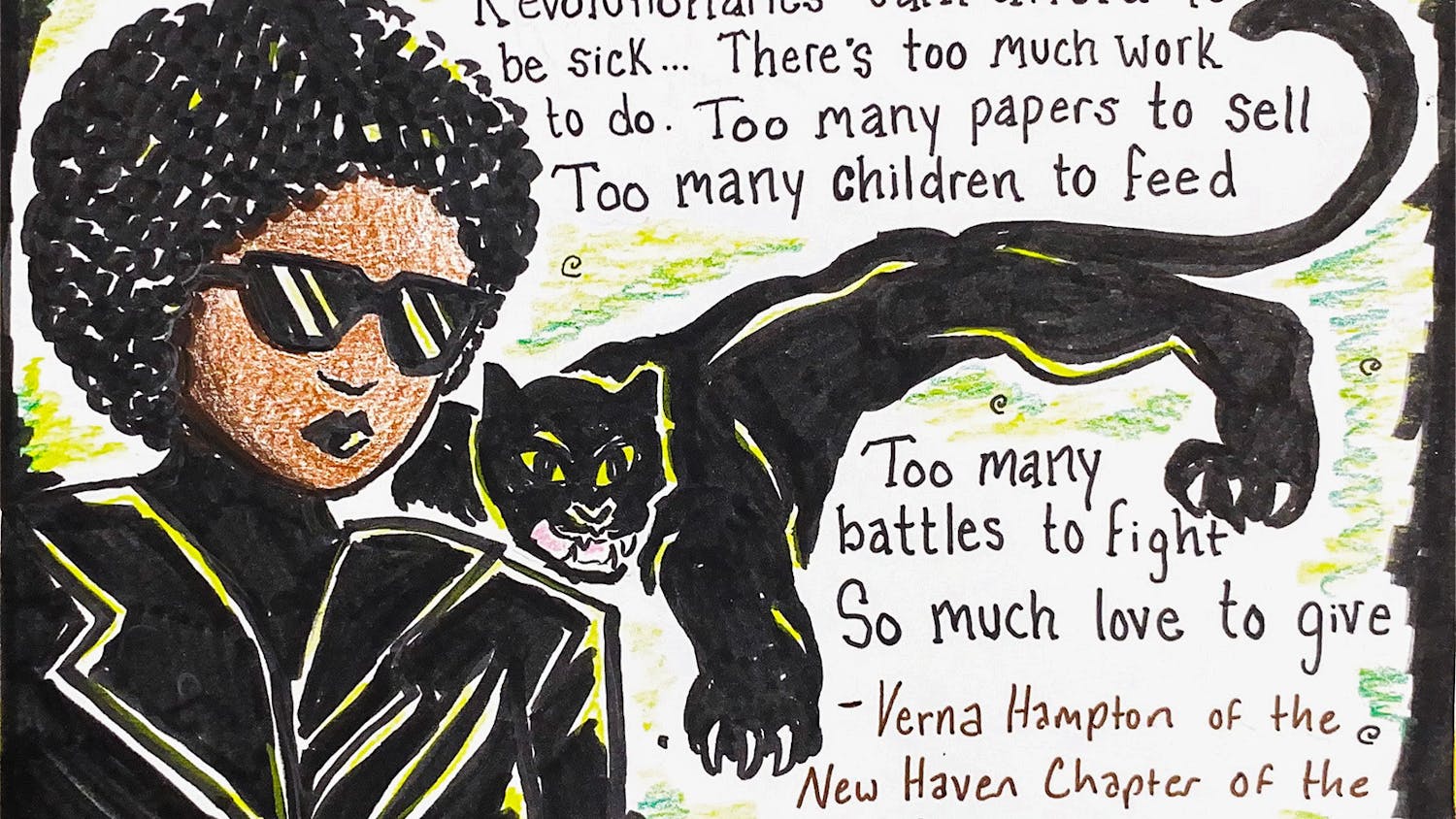Released in the United States June 3, 2022, the Afrofuturist musical “Neptune Frost” is a singular delight, jam-packed with strong political motion, fantastical design elements and powerful, moving music; it is truly unlike anything I have ever watched before.
The directorial debut of prolific musician and actor Saul Williams, co-directed by Anisia Uzeyman, “Neptune Frost” follows the interconnected stories of Neptune (Cherly Isheja and Elvis Ngabo) and Matalusa (Bertrand Ninteretse), a pair living under a dystopian totalitarian government known as the Authority whose tales intertwine when their meeting sets into motion an otherworldly technological force.
The film veers more toward poetry than prose. A definite weak spot in “Neptune Frost” is the cohesion in narrative; it is quite difficult to follow the plot, and things only really start to click into place around halfway through the movie. The freewheeling structure of the film, does not stop it from elegantly tackling an array of dense themes within the movie, ranging from the follies of capitalism, to gender, to the role increasingly uncanny technology serves for both good and evil.
The fully embodied design vision is one of the things that really makes this film work and serves as a stellar feat of Afrofuturist aesthetics. This is a movie that goes far beyond the lazy prerequisite “hologram/spaceship/time machine” imagination of the future. The sets, props, hair, makeup and costumes are evocative and artistic and make for a visually striking film that also feels intentional at every point.
The cinematography from Uzeyman takes great advantage of the skillful technical design on the film. The vivid colors and careful composition makes for a true work of visual poetry, giving each and every moment an otherworldly, ethereal atmosphere.
The story here is gutsy and overtly political; I admire that Williams had something very clear to say and that he injected his ideas directly into the script and libretto without tiptoeing around the discussions he really wanted to have and the leftist ideologies he wanted to express. There is something very punk in the ethos of this film: a riotous cry for revolution in the face of unyielding colonialist evil.
The music is probably the biggest driving force behind the political movement in the movie. The lyrics are in-your-face in their messaging, and what they lack in plot development, they more than make up for in intention.
In particular, I loved the way he handled discussions of Neptune’s identity as an intersex person. Though they do face discrimination on the basis of their gender identity, their trauma is not their defining factor. Neptune is quite comfortable in their own identity, and they are not forced through an Olympics of painful experiences in order to merit their place in the film.
Most impressive about this film is that it never feels like it took too much on thematically, a point on which many other films with lofty political goals have failed. It’s the kind of film that makes you want to take action, not dipping too far into any wishy-washy ideological discussions, but simply presenting the world as Williams sees it, through a fantastical future that manages still to connect with the everyday audience.
Zara Roy is the copy chief at the Daily Lobo. She can be reached at copychief@dailylobo.com or on Twitter @zarazzledazzle
Get content from The Daily Lobo delivered to your inbox






